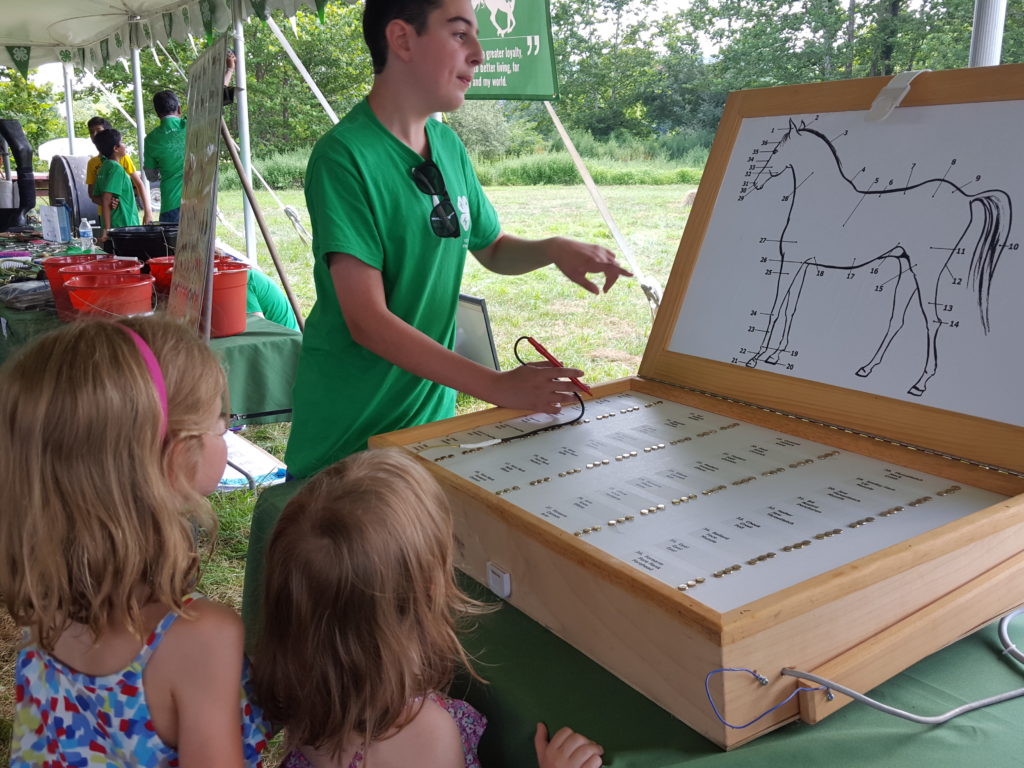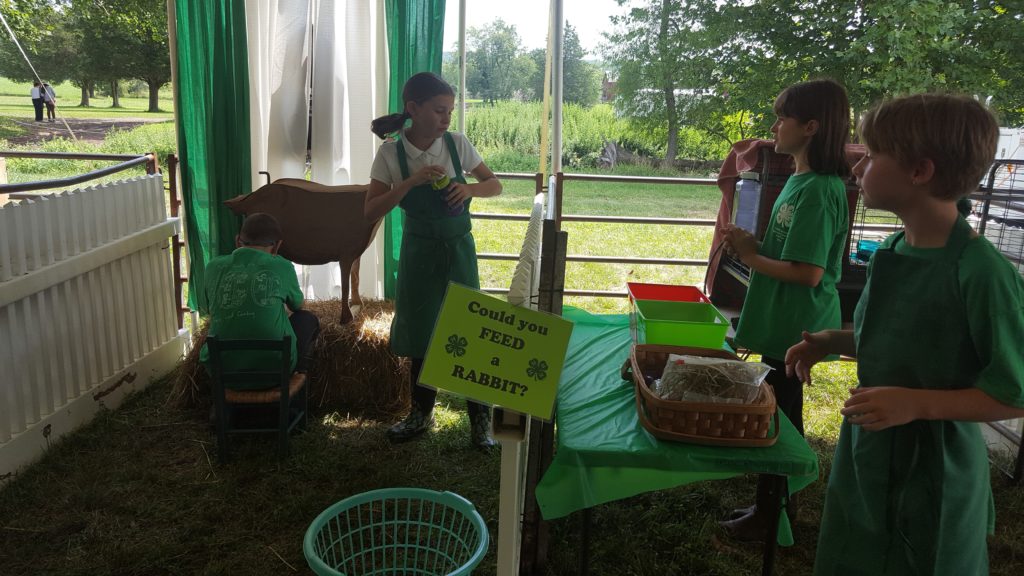Main Content

While County Fair season may be months away, 4-Hers know that now is the time to plan for this annual showcase of our project year, which provides a great opportunity for public engagement.
Animals are an integral part of our fairs – 4-H members care for and exhibit their livestock, horses, poultry, and small animals (a major draw for fairgoers). We show animals under tents to the public and perhaps even sell small animals like rabbits to new homes, as we recruit new members. 4-H youth further develop their public speaking abilities by demonstrating their grooming and showmanship skills and by answering questions from the public.
Showmanship is an important 4-H value, but 4-Hers so often push for even deeper engagements with animal science at this event. Here are ways to showcase animal science learning at your upcoming fair. Youth don’t need to own these project animals to take part in teaching or learning about them!
Animal Science at 4-H Fairs
- Educational Poster Entries: A 4-H club or special interest program may challenge its members to make educational posters or other exhibits about animal science topics. Youth can research relevant animal science topics in your county.
- Round Robin / Trivia Competitions: Round Robin trivia competitions are often led by Fair Ambassadors and/or Teen Council club members, and encourage youth to compete by learning facts about Fair entries and answering trivia questions. Why not make this year’s competition an even deeper dive into STEM and animal science?
- Public Presentations: Let the public learn more about animal science from our best ambassadors -4-H members! Fairgoers may hear from youth themselves what they have learned if some 4-H Public Presentations on animal science topics are delivered during Fair hours. Book some time in a show tent or on a stage to let 4-Hers demonstrate their public speaking skills and their animal science knowledge for all to see.

Do you have a great idea for teaching the public about animal science during the county fair? If so, email us, so we can feature your club’s efforts in an upcoming post!
By Laura Eppinger, Salem County 4-H Agent, Rutgers Cooperative Extension